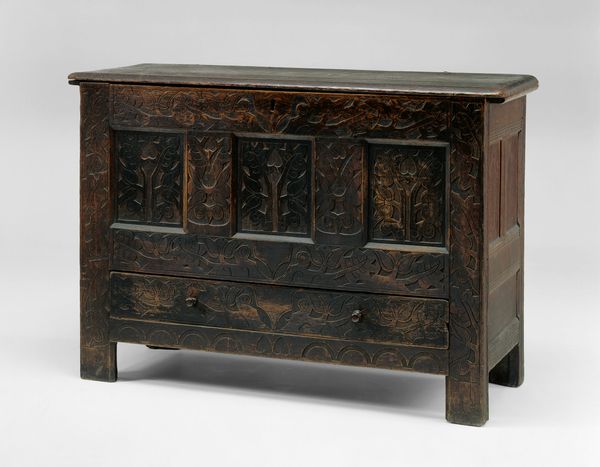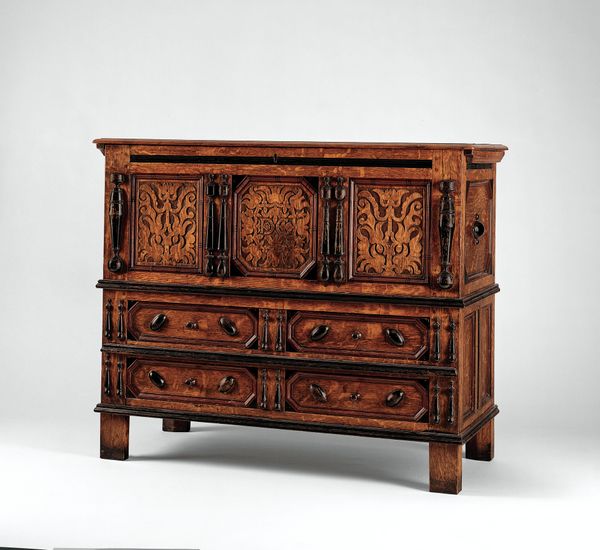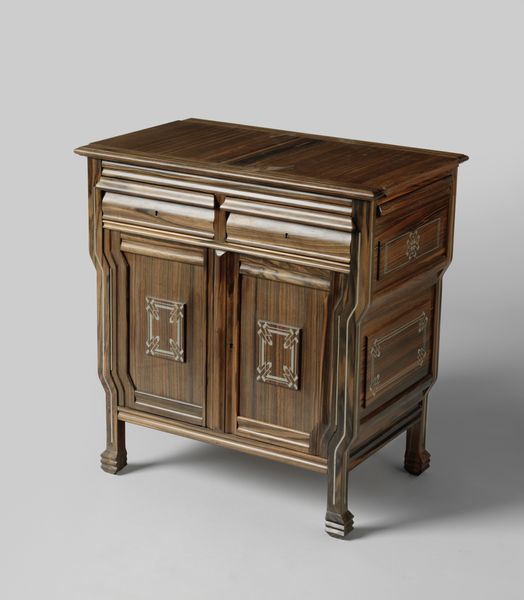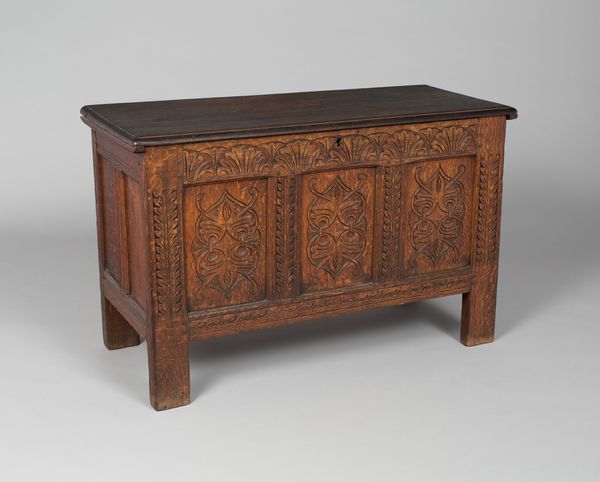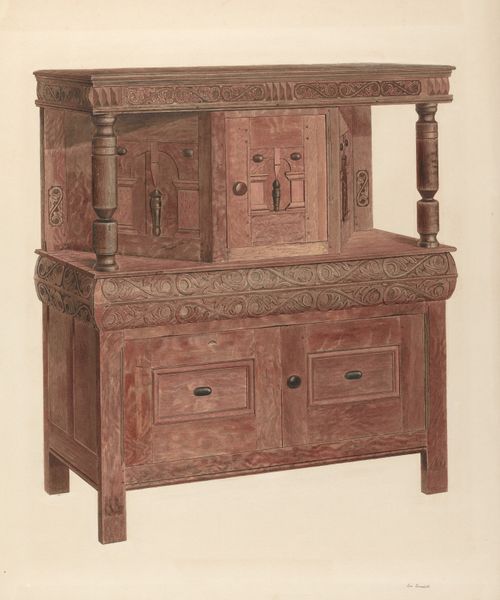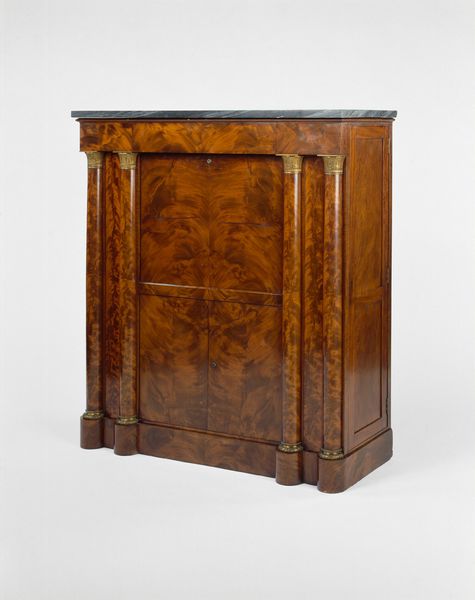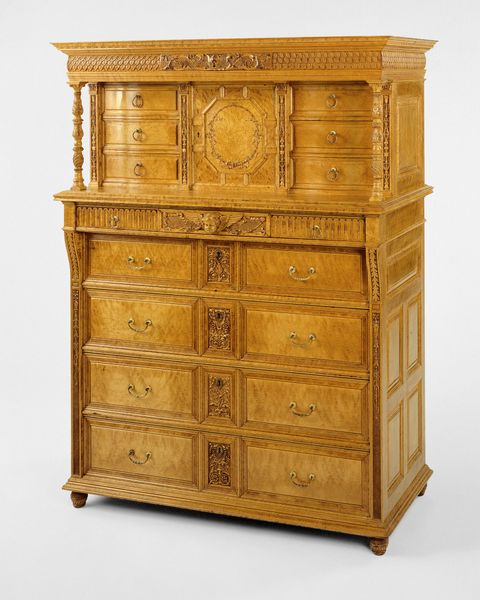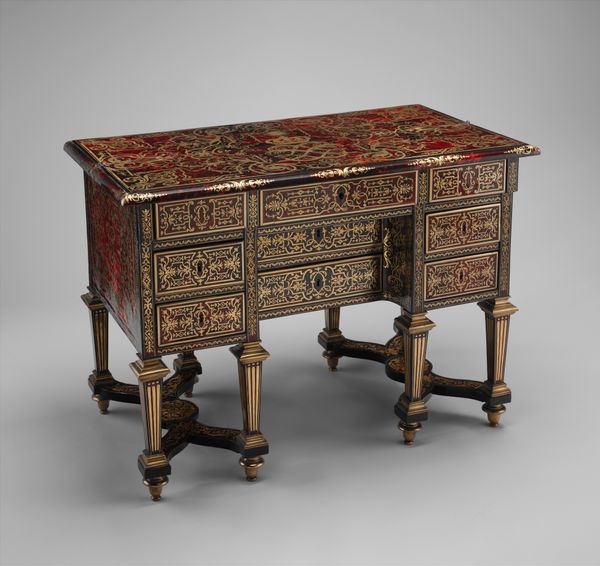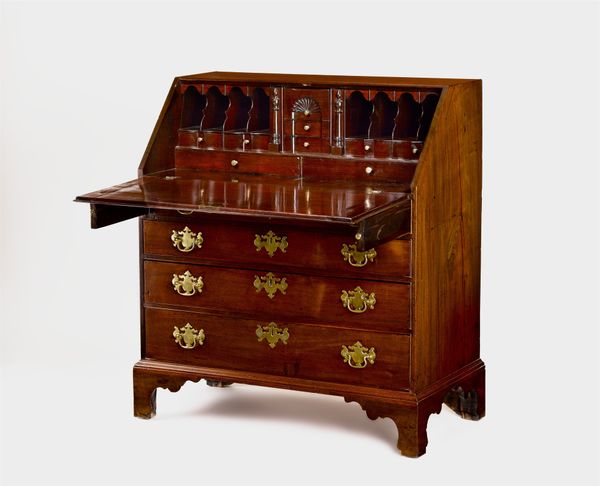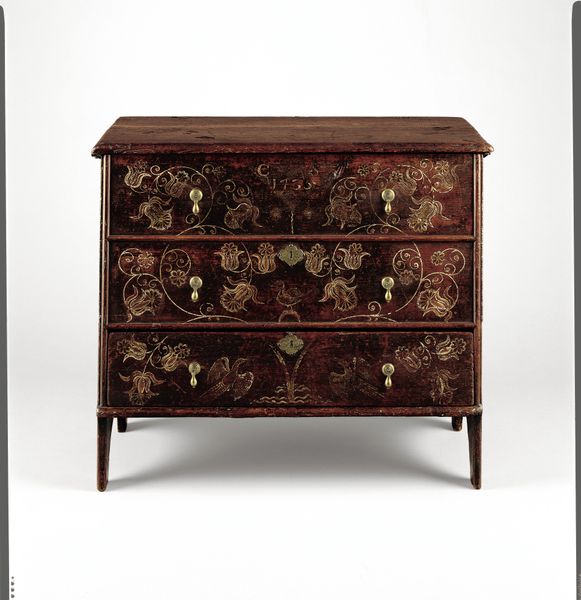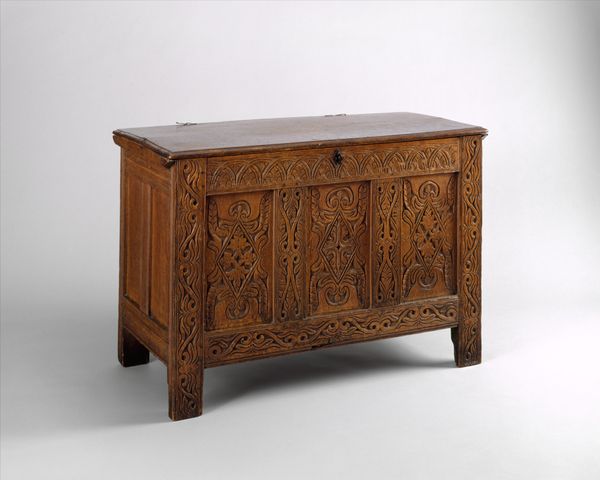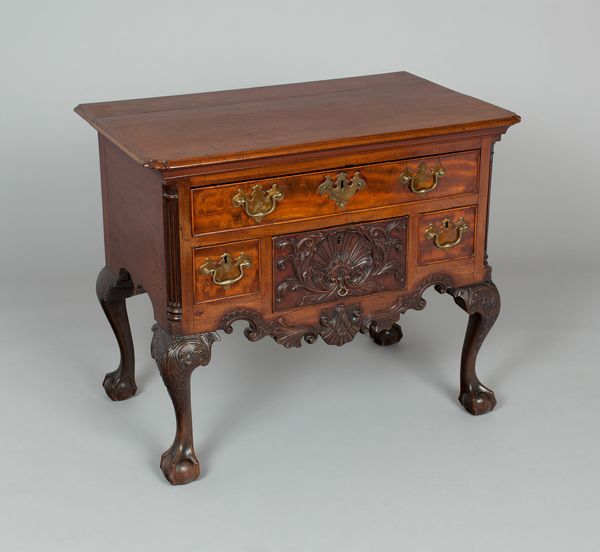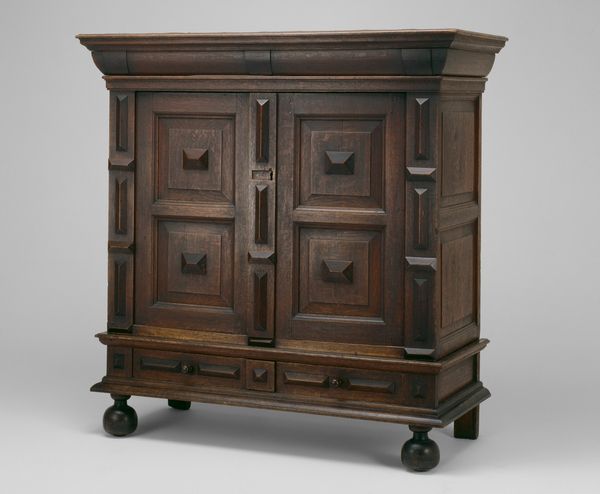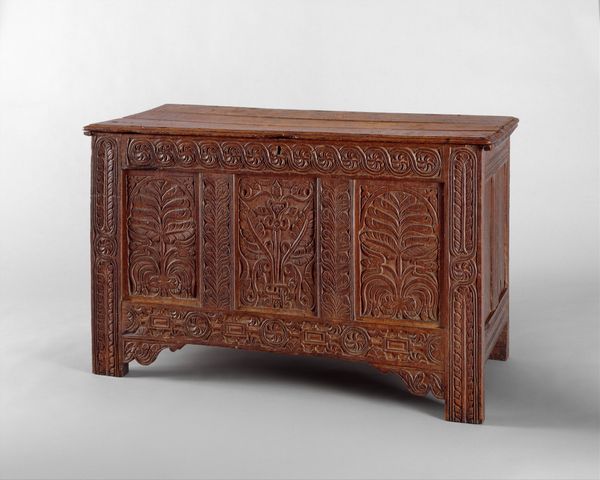
carving, wood
#
wood texture
#
carving
#
baroque
#
furniture
#
wood background
#
form
#
warm toned
#
united-states
#
wood
#
decorative-art
Dimensions: 43 x 46 x 21 in. (109.2 x 116.8 x 53.3 cm)
Copyright: Public Domain
Editor: This beautiful wooden chest of drawers, made sometime between 1670 and 1700, is attributed to the Symonds Shop. The level of detail is amazing – it's both functional and a real statement piece. What can you tell me about this kind of furniture in its time? Curator: Well, beyond its function, consider how furniture like this shaped early American identity. This chest wasn’t just storage; it was a display of wealth and belonging within a burgeoning society. Do you notice the prominent display of the wood grain and the craftsmanship? Editor: Yes, the carving and the choice of wood feels very deliberate, not just functional. Curator: Exactly. The “Symonds Shop” suggests a collective effort. Objects made like these helped solidify a shared visual culture and affirmed emerging class distinctions in the colonies. These craftspeople were integral in defining an aesthetic that distinguished them from European norms, wouldn't you say? Editor: So, it’s not just a chest, it's almost like a declaration? A symbol of status and a move away from European influence. But who would have owned something like this? Curator: Likely affluent landowners or merchants. Owning such a piece demonstrated their success and integration into colonial society. Now, think about where it would be placed in the home – visible, accessible to guests. It speaks volumes, doesn’t it, about how objects embody social narratives? Editor: Absolutely. I never thought of furniture as something that actively participates in the culture. It makes me see how even everyday things have a history. Curator: And contribute to history. This chest does that simply by surviving and telling its story.
Comments
No comments
Be the first to comment and join the conversation on the ultimate creative platform.
